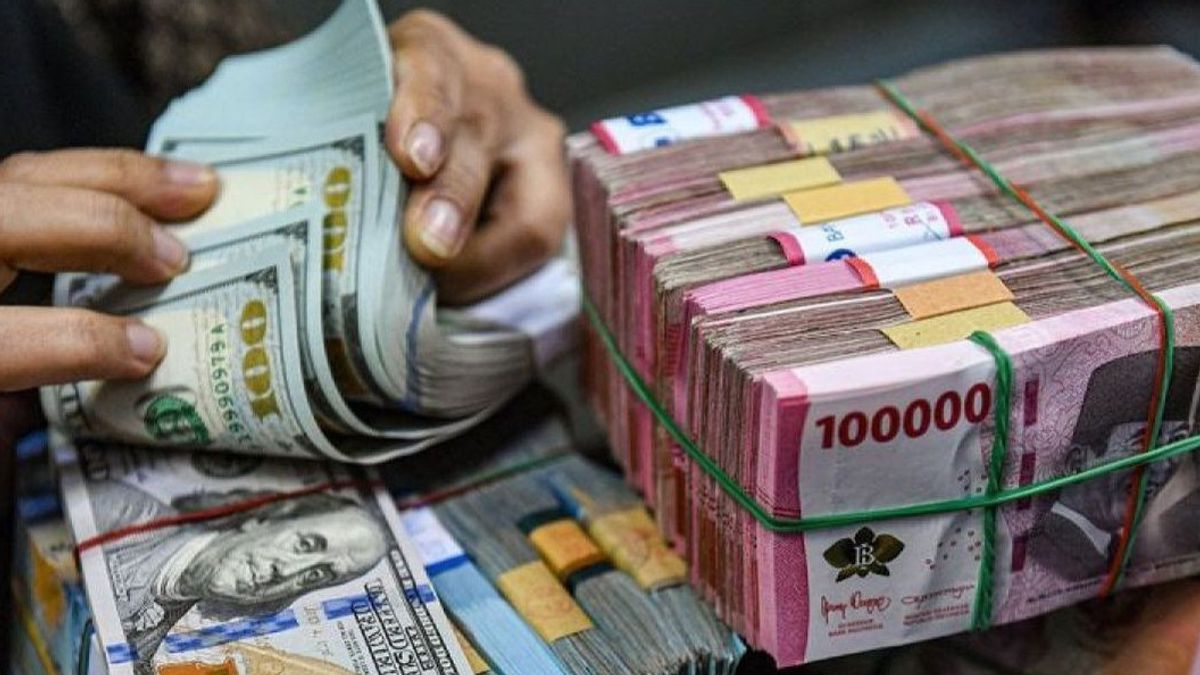JAKARTA - Finance Minister Sri Mulyani Indrawati said the rupiah exchange rate against the US dollar was depreciated year to date (ytd). Even so, the weakening of the rupiah exchange rate against the US dollar by 5.02 percent is still better when compared to several other countries.
According to Sri Mulyani, this is in line with the external resilience of the national economy which is quite stable with the exchange rate policy which leads to maintaining rupiah stability.
Sri Mulyani said that until March 28, 2024, the rupiah exchange rate had depreciated by rupiah by 2.89 percent.
"This is lower than the weakening of the currencies of several other emerging markets such as Baht Thailand 6.41 percent (ytd), and Ringgit Malaysia 2.97 percent," he said at the KSSK II Periodic Meeting Results Press Conference in 2024, quoted on Saturday, May 4.
The performance of the rupiah maintained was supported by the Bank Indonesia (BI) stability policy and the trade balance surplus of goods which continued in a row for 47 months since May 2020.
Meanwhile, Indonesia's foreign exchange reserves (cadev) until the end of March remained high at US$ 140.4 billion or equivalent to 6.4 months of imports or 6.2 months of imports and payment of government foreign debt, and was above the international adequacy standard of around 3 months of imports.
According to Sri Mulyani in April 2024, pressure on global currencies continued in line with the increasing uncertainty of the global financial market which pushed for the continued strengthening of the US dollar. The US dollar exchange rate index against the main currency or DXY rose sharply to the highest level of 106.25 on April 16, 2024 or experienced a 4.86 percent appreciation compared to the level in December 2023.
Sri Mulyani conveyed that these developments put pressure on depreciation on all currencies in the world, including the rupiah exchange rate.
"At the close of the market on April 26, Japan's Yen and South Korean Won, respectively weakened 10.92 percent and 6.34 percent ytd," said Sri Mulyani.
SEE ALSO:
Meanwhile, regional currencies such as the Thai Bath currency also weakened at the level of 7.63 percent ytd and the rupiah which was recorded to have weakened 5.02 percent ytd.
According to Sri Mulyani, the stabilization of the rupiah exchange rate is better supported by the policy response of Bank Indonesia (BI) which continues to strengthen the policy of stabilizing the rupiah exchange rate by optimizing monetary instruments.
As part of the KSSK, Bank Indonesia will also continue to strengthen its pro-market monetary operations strategy to attract the entry of foreign portfolio flows from abroad and continue to strengthen the coordination and implementation of foreign exchange placement instruments to foreign exchange export products (DHE) and natural resources (SDA) in line with Government Regulation Number 36 of 2023.
The English, Chinese, Japanese, Arabic, and French versions are automatically generated by the AI. So there may still be inaccuracies in translating, please always see Indonesian as our main language. (system supported by DigitalSiber.id)
















